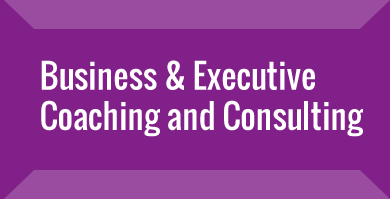Business Tips
The Different Faces of Telling and Asking
- Details
- Parent Category: Business Tips
- Category: Communication
The Faces of Telling
Why is it that “telling” is so popular?
• It’s easier and takes less energy to “tell” rather than to “ask” great questions.
• You have to think about what to ask and focus on listening to the answers.
• People feel in control when they “tell” rather than “ask.”
• You have to be self-aware, open-minded, and vulnerable to shift from “telling” to “asking.”
“Telling” is valuable and necessary when providing important instructions, giving progress reports, answering other peoples questions, and presenting what you believe to be true. The downside of excessive telling and not soliciting feed-back includes:
• You may come across as a “know it all.”
• Telling evokes defending oneself and attacking others.
• Telling fosters competition rather than cooperation and collaboration.
• It divides rather than unites.
• You may be mistaken or out of touch.
• Relationships weaken when one or more people gravitate toward “telling.”
• You are denying yourself the opportunity to learn, grow, and expand.
The Neuroscience of Asking
“Asking” questions is a very high form of learning. The Socratic method is at the heart of critical thinking, problem-solving, decision-making, learning, and growth. The following Practical Neuroscience 101 summary builds a foundation to help you understand why “asking” is so important:
1. Your brain is a “vault of stored information.”
2. Information comes from everyone you have interacted with, including social media and all life experiences.
3. Your brain tends to seek data that reinforces deeply imprinted information, regardless of whether or not it's faulty.
4. Repetition and strong emotions lock experience into long-term memory.
5. Most everyone thinks they are "right;" this is a dangerous situation and the basis for discord and war.
6. You can change your internal programs by questioning your thinking and getting input from people you trust.
7. “Change your thinking, change your life.”
The bottom line is that your “vault of information” (brain) stores past experiences. At best, the information is incomplete and perhaps faulty. If your life is flowing well, the chances are your stored information is serving you well. If life is difficult and challenging, this may be a wake-up call to think about what you have stored that defines your quality of life.
The advantages of “asking” questions may seem a bit more obvious, now that you understand how your brain works. Asking authentic and courageous questions starts the release of limiting thoughts and replaces these “lower road” thoughts with “higher road” ones. The following are two short lists of questions to stimulate your imagination, catalyse positive change, and get you started on an exciting journey of self-exploration, better relationships, and a better life.
Ask Yourself Questions
Select areas of your life that cause you pain and engender fear. Ask yourself questions like “does this belief or experience serve or imprison me;” “what would I replace this picture with;” “what new thoughts, words, and actions move me toward what I really want;” “what can I read or watch that supports my new thinking;” “what people in my life do I want to associate with who emulate what I want to be;” what do I want to think about, say, and do that will build a new and better me?”
Posing courageous questions to yourself provides powerful and profound benefits:
• Thinking on your own versus being under the influence of what others told you
• Building self-esteem and self-confidence
• Ridding yourself of limiting thoughts and beliefs that hold you back and keep you from moving forward
• Creating inner space for inner peace
• Providing practice time to ask other people questions
• It’s safe and you’re 100% in control.
Ask Others Questions
There may be no finer and grander way to build trust and great relationships than by asking questions to people you care about and work with. Some examples to get you started include: “will you share with me your views and insights on (subject);” “what life experiences and insights support your belief; “I have a problem and need your help;” “what can I do to improve my relationship with you;” “are there things I do that you want me to stop doing;” “what would you like me to continue doing;” “what new things would you like me to start doing;” “what questions would you like to ask me?”
The benefits of asking more questions should be clear and obvious. Some that come to mind include:
• It's fun and easy once you see the benefits.
• You become more connected with others, while building rapport and trust.
• You learn to understand and respect others.
• You tend to be kinder and more compassionate.
• Asking creates more inner space for inner peace.
• It’s safe and you’re 100% in control.
In Summary
The litmus test for how often you ask yourself and others meaningful and authentic questions is your level of inner peace, sense of purpose, excitement about life, and quality of relationships. The best way to change your thinking and change your life is to ask more questions to yourself and others. My favourite question to ask myself when I arise in the morning is, “what’s possible today for me to be a new and better me?”
Finally, you have another guidance system; it’s your heart and it's rarely, if ever, wrong. Think about what life would be if you focused on your “heart's desire” and used your brain to create and implement plans to meet your heart's goals. The results will be beyond your wildest dreams. Can you see the logic and possibilities to form a partnership between your heart and your brain? Just remember who you want to be the “boss.” Of course, you still want to ask questions of yourself and others; you will find that the questions get more profound and rewarding.
With thanks to Brainpathways



























